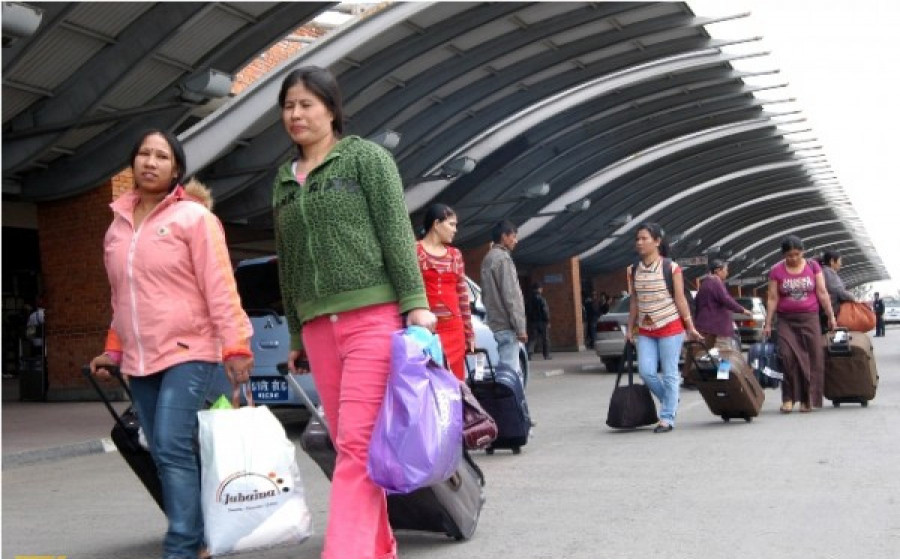National
Guidelines ready for sending Nepali carers to Israel
Nepal and Israel had signed a deal in September last year for sending 500 Nepali caregivers.
Chandan Kumar Mandal
Months after Nepal and Israel signed a deal that will allow Nepalis to take up jobs in Israel, the government has finalised a working procedure that will guide the overall process of sending Nepali workers.
The new working procedure prepared by the Ministry of Labour, Employment and Social Security will facilitate the overall labour migration to Israel under the agreement signed in September last year.
As per the understanding signed between the two countries, Israel agreed to hire 500 Nepali workers—both male and female— for its nursing sector. After the framework agreement in September, the two sides had later signed the Implementation Protocol in January, formally paving the selection and recruitment process for Nepali caregivers.
“With the drafting of the working procedure, the remaining process will move ahead for sending Nepali workers to Israel,” Dipak Kafle, the spokesperson of the Labour Ministry, told the Post. “The guideline will be implemented and a timeline will be followed for sending Nepali workers.”
The new working procedure guides the worker demand verification process, criteria for candidates, application procedures, and the process of selecting candidates, among other aspects.
Nepali citizens between 25-45 years of age, who meet other criteria set by Israel, can apply for the caregiver jobs. An eligible candidate should weigh at least 45kg, be no less than 1.5 metres tall, be physically and mentally fit with specified educational qualifications.
Candidates with ten years of schooling will need to have a 15-month pre-diploma course such as community medicine assistant (CMA) or auxiliary nurse-midwifery (ANM). Candidates who have passed plus two school exams will need to have three months of caregiver training.
According to the working procedure, candidates are required to have completed their courses from an institution affiliated with the Council for Technical Education and Vocational Training (CTEVT) or caregiver training from an institute registered with the Department of Foreign Employment.
Besides, the candidates should exhibit knowledge of the English language and decent character.
The worker will have to bear all the expenses including airfare, insurance, medical examination, contribution to the Foreign Employment Welfare Funds and labour permit.
However, there is still uncertainty about when the workers will start migrating to Israel as it has already been seven months of inking the agreement. Even in March, government officials told the Post that preparations for sending Nepali workers to Israel were in the final phase.
“Due to the current pandemic and restrictions, the process will be somehow affected,” said Kafle. “Although there will be some impacts, applications for the jobs will be accepted online so that the process will move ahead. The Department of Foreign Employment will decide when to announce online applications.”
In Nepal, the Department of Foreign Employment, the central government body overseeing the foreign employment sector, will be responsible for hiring the caregivers and sending them to Israel. Likewise, the Population and Immigration Authority is the line agency in Israel.
According to Krishna Prasad Dawadi, director-general of the department, preparations for the syllabus for English language test and examination modality are underway.
“A sub-committee has been formed for overseeing syllabus development and an online portal where candidates can apply for jobs,” Dawadi told the Post. “As it is not feasible to accept applications in person due to the pandemic, we have arranged an online application system, which will be ready in a week or so.”
But Nepali workers will start flying to Israel only after the government receives demand from the Israeli side. As per the working procedure, when the Nepali Embassy in Israel receives demand from Israel, it will verify the demand document and forward it to the department in Nepal.
“Upon receipt of the demand documents, the department, within 14 days, will publish job offers on its website and national newspapers with an application deadline of a minimum of 21 days,” said Dawadi. “On our side, work on software development for online applications and syllabus development are in the final stage. Now we will have to wait for worker demand from Israel.”




 8.22°C Kathmandu
8.22°C Kathmandu














